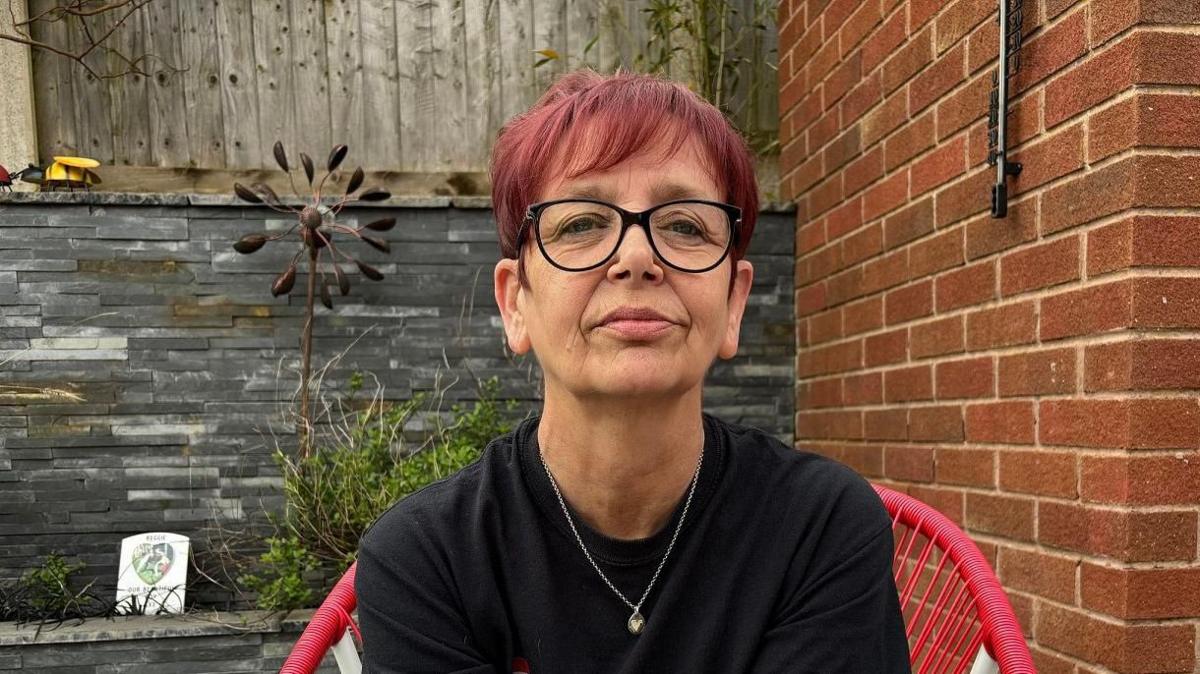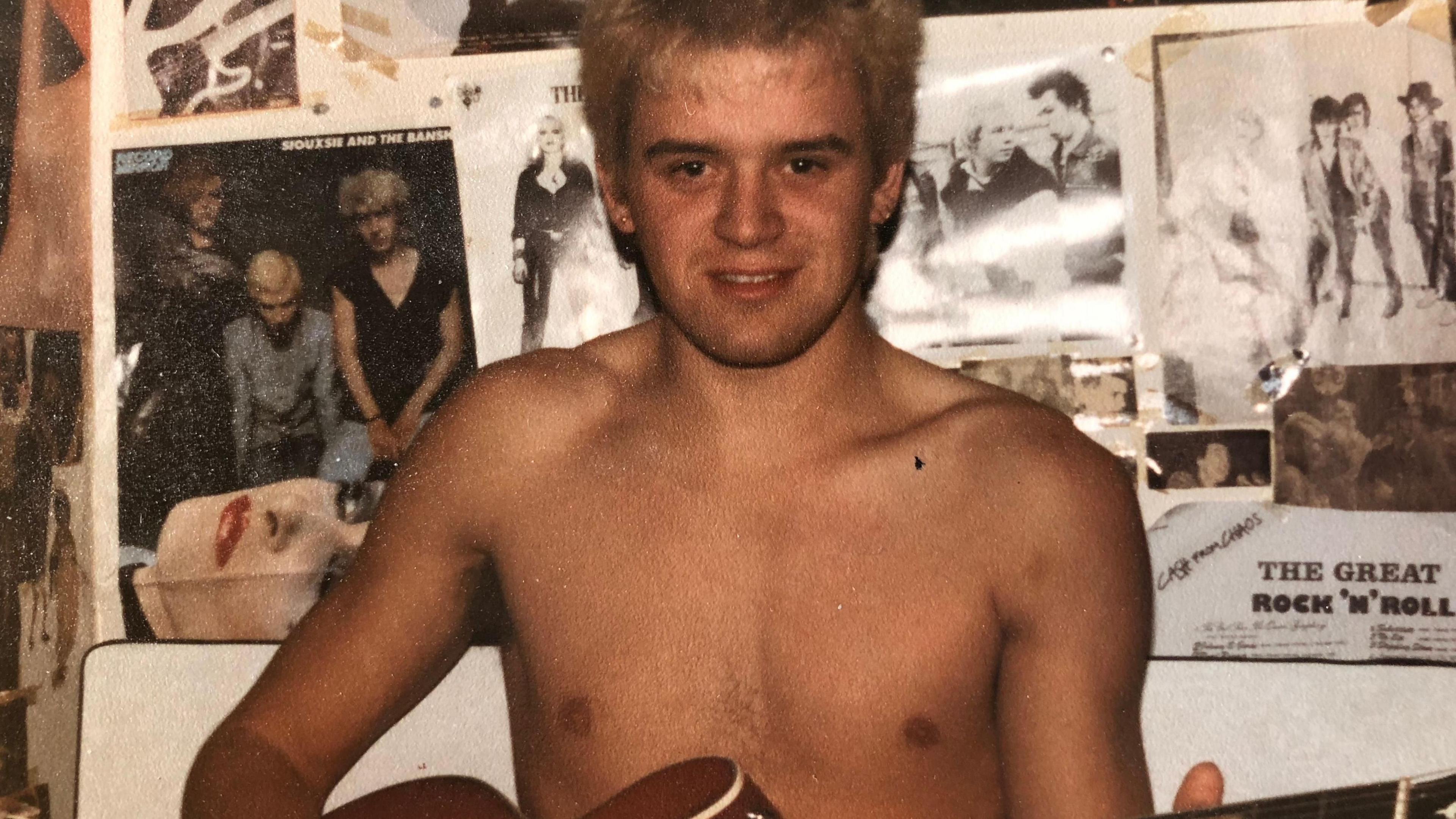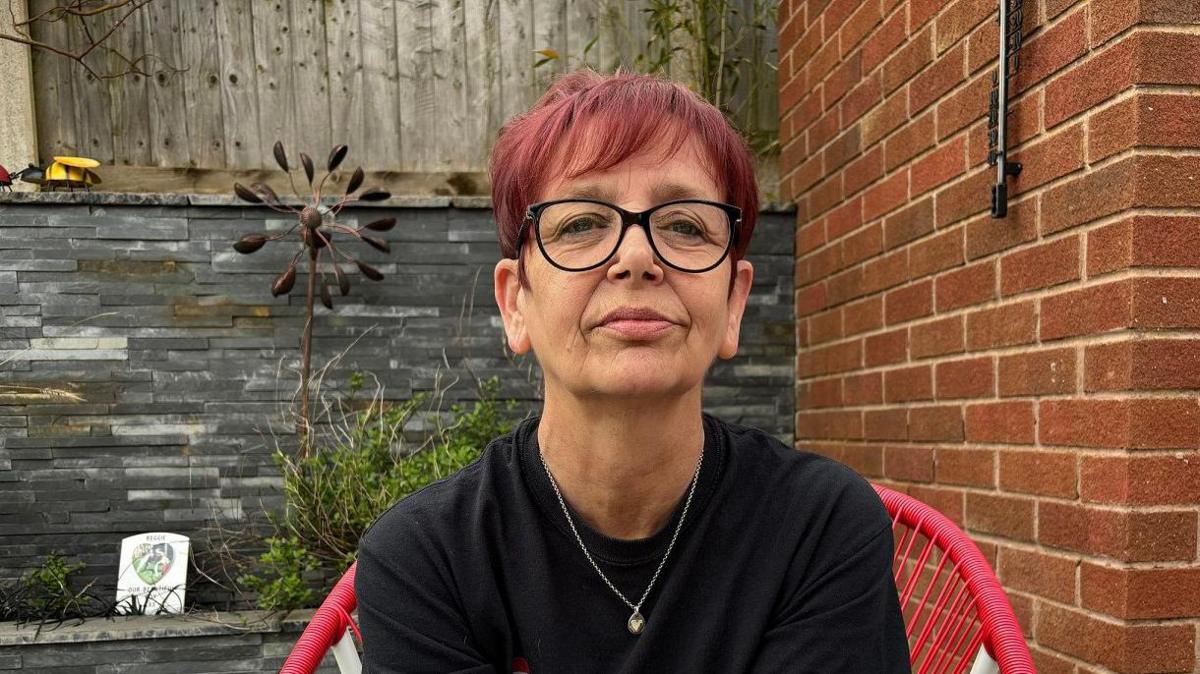Victims 'vindicated' after blood scandal report

Janine Jones, from Bromsgrove in Worcestershire, has spent over two decades campaigning for justice for her brother, who died in 2003
- Published
Victims of the infected blood scandal from the West Midlands said they felt "vindicated" after a long-awaited report found they had been failed by the government, the NHS, and doctors.
A five-year public inquiry said on Monday that authorities had covered up the scandal and knowingly exposed patients to risks.
"It really vindicates and validates everything that we've been campaigning for," said Andy Evans from Evesham in Worcestershire.
From 1970 to 1991, more than 30,000 people were infected with HIV and hepatitis C by contaminated blood products and transfusions.
Victims and their families have campaigned for decades for an inquiry and an apology over the scandal, as well as compensation for those affected.
"[The report] was everything that we have been saying for 40 years on this campaign, but written down by a high court judge," said Mr Evans.
"It's absolutely immense."
Originally from Northfield in Birmingham he was infected with HIV at the age of five during haemophilia treatment.

Andy Evans was infected with HIV at the age of five during haemophilia treatment
Martin Beard, from Burton-upon-Trent was also infected with HIV as a child during haemophilia treatment.
He said he felt like "a big weight" had been lifted off his shoulders after reading the report.
He added that, as well as dealing with health issues, many victims had had to cope with the stigma around HIV in the 1980s.
"I was spat at in the street by strangers. I was banned from a pub where I played pool,” said Mr Beard, 55.
"You were so alone and isolated."
He said he and other victims had campaigned about the scandal for years to "make sure that something like this never happens again".
'They could have stopped it'
About 3,000 people affected by the scandal have since died and many were left unable to work due to health issues.
Janine Jones, from Bromsgrove in Worcestershire, has spent over two decades campaigning for justice for her brother Marc Payton, who was infected with HIV and hepatitis C as a child in the 1970s and died aged 41 in 2003.
Ms Jones said Monday's report had put everything that campaigners had been saying "in black and white".
Among the many issues covered by the inquiry, the final report detailed how authorities did not act, even once the risks of some blood products were known.
"They knew way before my brother was infected that they could have stopped it. They could have stopped it happening to so many people and they just didn't," Ms Jones said.

Marc Payton was infected with HIV and hepatitis C as a child in the 1970s
However, campaigners also said the government's response to the report was a crucial next step.
"We've had too many apologies, we've had too many sorrys, they now need to act," Ms Jones said, adding that the government needed to make progress on finding out the exact numbers of people affected and registering victims for compensation.
Other campaigners, while welcoming the report and hoping it would prompt reforms, said they may never feel a full sense of justice.
"I'm not sure if you can ever ask people to move on from this, because you cannot obliterate and forget the horrors of what's happened over the last 30 years," said Colette Wintle, from Lower Broadheath in Worcestershire.
Ms Wintle outlined in her public inquiry submission how being infected with hepatitis had led her to develop cirrhosis of the liver, forced her to retire at the age of 38, and affected her relationship with her family.
"I've had to give up the best years of my life, as a victim of the scandal," she said.
Follow BBC West Midlands on Facebook, external, X, external and Instagram, external. Send your story ideas to: newsonline.westmidlands@bbc.co.uk, external
Related topics
More on the infected blood scandal
- Published20 April 2024

- Published12 April 2016

- Published22 April 2024
